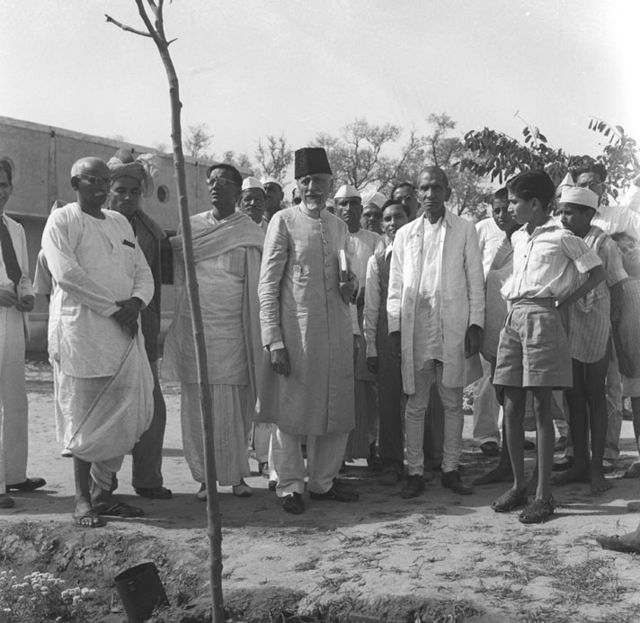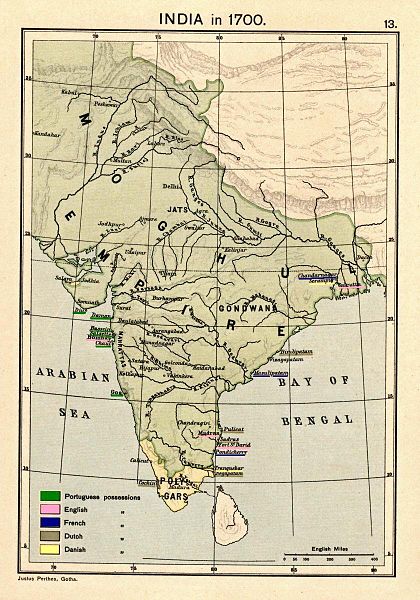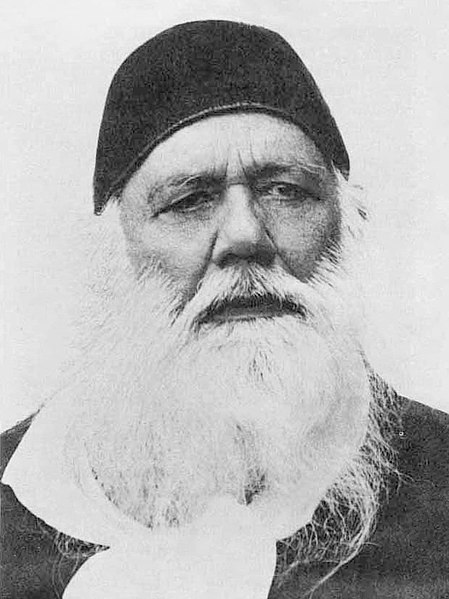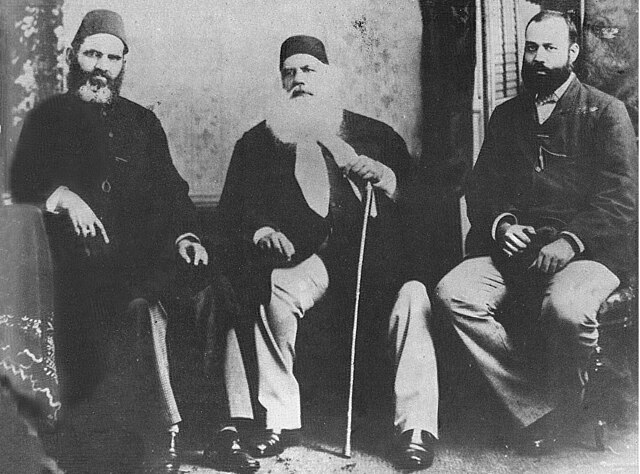Opposition to the Partition of India
Opposition to the Partition of India was widespread in British India in the 20th century and it continues to remain a talking point in South Asian politics. Those who opposed it often adhered to the doctrine of composite nationalism in the Indian subcontinent. The Hindu, Christian, Anglo-Indian, Parsi and Sikh communities were largely opposed to the Partition of India, as were many Muslims.
Khudai Khidmatgar leader Khan Abdul Ghaffar Khan and Mahatma Gandhi, both belonging to the Indian National Congress, strongly opposed the partition of India, citing the fact that both Muslims and Hindus lived together peacefully for centuries and shared a common history in the country.
First Session of All-India Jamhur Muslim League, which was established by Maghfoor Ahmad Ajazi to support a united India (1940).
Maulana Abul Kalam Azad, a key player in the Indian independence movement, stated in India Wins Freedom that "as a Muslim, I for one am not prepared for a moment to give up my right to treat the whole of India as my domain and share in the shaping of its political and economic life. To me it seems a sure sign of cowardice to give up what is my patrimony and content myself with a mere fragment of it." He argued that if India were divided into two states, "there would remain three and half crores of Muslims scattered in small minorities all over the land. With 17 per cent in UP, 12 per cent in Bihar and 9 per cent in Madras, they will be weaker than they are today in the Hindu majority provinces. They have had their homelands in these regions for almost a thousand years and built up well known centres of Muslim culture and civilisation there."

"To welcome Partition is to imply that people with different backgrounds and different blood-lines cannot live together in one nation, a regressive suggestion." —Rajmohan Gandhi, Professor at the Center for South Asian and Middle Eastern Studies of the University of Illinois at Urbana–Champaign
The two-nation theory was an ideology of religious nationalism that advocated Muslim Indian nationhood, with separate homelands for Indian Muslims and Indian Hindus within a decolonised British India, which ultimately led to the Partition of India in 1947. Its various descriptions of religious differences were the main factor in Muslim separatist thought in the Indian subcontinent, asserting that Indian Muslims and Indian Hindus are two separate nations, each with their own customs, traditions, art, architecture, literature, interests, and ways of life.
The Mughal Empire in 1700
Syed Ahmed Khan
Mohsin-ul-Mulk
Syed Ahmed Khan, Mohsin-ul-Mulk and Syed Mahmud








